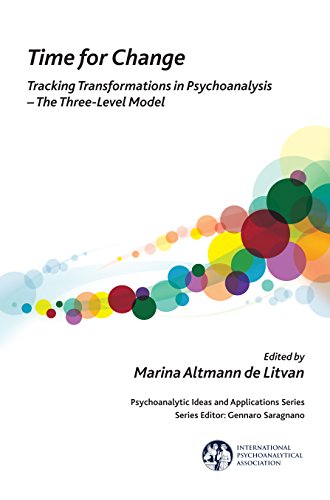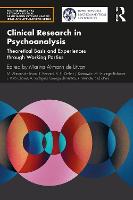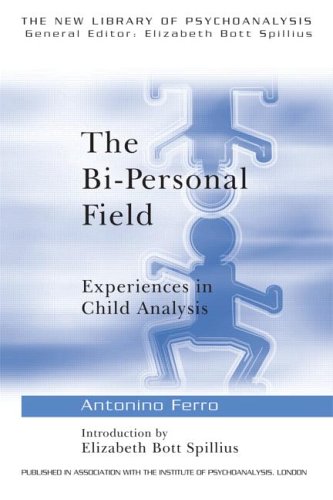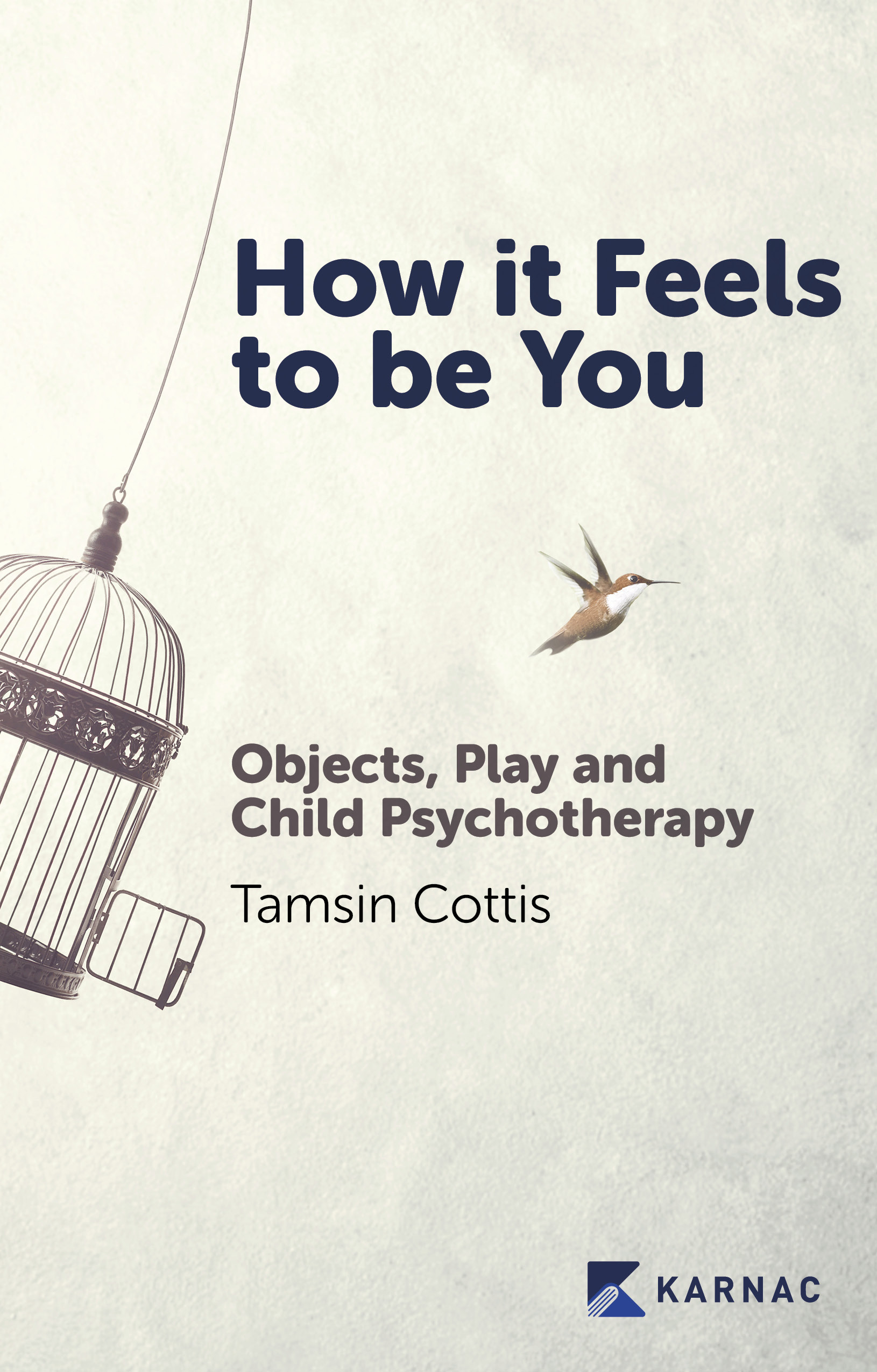Change Through Time in Psychoanalysis: Transformations and Interventions: The Three Level Model
Part of IPA - Psychoanalytic Ideas and Applications series - more in this series
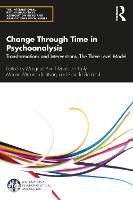
Book Details
- Publisher : Routledge
- Published : April 2021
- Cover : Paperback
- Pages : 342
- Category :
Psychoanalysis - Catalogue No : 95578
- ISBN 13 : 9780367560911
- ISBN 10 : 9780367560
Also by Marina Altmann de Litvan
There are currently no reviews
Be the first to review
Change Through Time in Psychoanalysis presents a new stage of the work done through the IPA Committee on Clinical Observation between 2014 and 2020-the advances in our method, the Three Level Model (3-LM), and our clinical thinking.
In this new volume, ideas on observational research, clinical narratives based on 3-LM group discussions, and adaptations of the model for training candidates show more experience, more depth, more answers, and, of course, new questions. Contributors from three regions of the IPA have written extended case studies of 10 psychoanalyses, rich in verbatim session material, focusing on the main dimensions of the patient's psychic functioning, specific changes in the analytic process, and related interventional strategies.
The reader will find, in the method and in the clinical narratives, new and clarifying points of view in the observation of transformations in patients in psychoanalysis and of the analysts' techniques, useful both in professional development and in teaching candidates.
Reviews and Endorsements
"This book is a relevant contribution to clinical, technical, and theoretical psychoanalysis. The Three-Level Model was already introduced in the first volume of the Committee on Clinical Observation, and this volume shows how the group has continued to deepen their work with this method in a quite remarkable way. While the aim is still to observe psychic change by studying clinical materials in groups, this time an important achievement has been made through the application of the model to different fields, such as child analysis, and clinical cases presented by candidates. The latter contribute significantly towards fostering Psychoanalytic Education. The authors deal with sensitive and difficult subjects such as the notions of impasse, common ground or pluralism, among others, without eluding controversy, thus promoting a sincere dialogue between different theoretical approaches. The book is a must-read for all those truly interested in contemporary psychoanalysis." - Virginia Ungar, M.D., IPA President.
"The authors have woven clinical thinking together with rich verbatim material and systematically documented how psychoanalysts can illustrate how change takes places in psychoanalysis. Their methods are original, rigorous, and creative. The book is inspirational in that the methodology is uniquely suited to illustrate how psychoanalysts and analysands work together and the subtle, and not so subtle, changes that occur over time through their interactions. The material can be studied by many groups of clinicians allowing for replication of ratings, which permits an establishment of reliability. Clinicians will recognize vivid accounts of how patients grow and change over time. Both clinicians and researchers will be impressed by the development of a method that retains the complexity of clinical work. The book provides psychoanalysts with a way to teach present and future psychoanalysts how to practice in, and study, our field." - Judith L. Kantrowitz, PhD, training and supervising analyst, Boston Psychoanalytic Society and Institute; author of The Role of the Patient-Analyst March in the Process and Outcome of Psychoanalysis.
"Change Through Time in Psychoanalysis, by a high-powered international team of respected psychoanalytic clinicians, researchers, and epistemologists, is a major contribution to the current endeavour to develop new methods for studying psychoanalytic processes, bringing together psychoanalysts working from different theoretical models. They are the first in this new field to look at what kinds of changes actually take place in psychoanalysis and how these come about, using an original and clinically meaningful combination of careful in-depth psychoanalytic exploration of detailed cases, together with more systematic forms of assessment. Their work on metaphors as anchor points for evaluating change is one particularly interesting example of how this kind of research remains rooted in, and contributes to, psychoanalytic thinking. I congratulate these excellent colleagues whose book is important reading for all of us who feel responsible for evaluating and validating what we really do and how and why patients can benefit from psychoanalysis." - Bernard Reith, President of the Swiss Psychoanalytical Society, past Chair of the EPF Working Party on Initiating Psychoanalysis, Co-Chair for Europe of the IPA Working Parties Committee.
About the Editor(s)
Margaret Ann Fitzpatrick Hanly, PhD, is a training and supervising analyst of the Canadian Institute of Psychoanalysis, Chair of the IPA Committee on Clinical Observation, past Director of the Toronto Institute of Psychoanalysis, and a member of the Executive Editorial Board of the Psychoanalytic Quarterly.
Marina Altmann de Litvan, PhD, is a child and adolescent psychoanalyst, a full member and training analyst of the Uruguayan Psychoanalytic Association, and a member of the Clinical Research Subcommittee of the International Psychoanalytical Association (IPA). She has been a member of the Education Committee and Co-Chair of the Education-Research Subcommittee of FEPAL, as well as Research Fellow and Visiting Professor at University College of London, Research Training Programme. She was also awarded the Biannual Exceptional Contribution Award from the Research Committee of the IPA for her research into verbal and nonverbal interactions in mother-baby psychotherapeutic process. She has published chapters of books and papers both in Spanish and English.
More titles by Marina Altmann de Litvan
Ricardo Bernardi, MD, PhD, is an Honorary Member of the Uruguayan Psychoanalytical Association, Emeritus Professor of the School of Medicine, full member of the National Academy of Medicine of Uruguay, and Vice-Chair of the IPA Research Committee.
Customer Reviews
Our customers have not yet reviewed this title. Be the first add your own review for this title.
You may also like
Field Theory in Child and Adolescent Psychoanalysis: Understanding and Reacting...
Elena Molinari
Price £38.99
Clinical Research in Psychoanalysis: Theoretical Basis and Experiences through...
Marina Altmann de Litvan
Price £29.69
save £3.30


